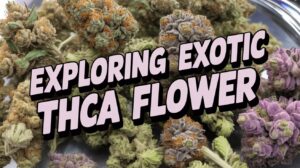This comprehensive guide explores the legality of Delta-8 THC in Connecticut. We go into state-specific laws, compare them with federal regulations, and underscore the potential ramifications of non-compliance.
Additionally, we shed light on the legal landscape of this new variant of THC; we hope to assist you in making informed decisions about Delta-8 THC usage, thus ensuring safety and adherence to the law.
Key Takeaways
- Delta-8 THC is not legal as a hemp product in Connecticut. The State categorizes it as Marijuana and only licensed dispensaries can sell it.
- The state sets a limit on all hemp THCs, where you only get 1 mg per serving. Anything above that falls under marijuana and is sold as such.
- Connecticut does allow cannabis for recreational use, with regulations.
- Delta-8 THC can make you feel high, and you can use it for relaxation or to uplift your mood, but it can also come with adverse side effects such as slowed reaction times, loss of coordination, and rapid heart rate.
Delta-8 Legality in Connecticut
The question – ‘Is Delta 8 legal in Connecticut?’ – might have you scratching your head. Let’s unravel this together.
In the land of steady habits, Connecticut says, “Yes, you can sell Delta-8 THC, but with a twist!” Buckle up for this rollercoaster of a legislative ride.
Back in 2021, Connecticut was all for hemp and hemp-derived products with less than 0.3% total THC on a dry weight basis. However, in June 2023, Connecticut unveiled its House Bill (HB) 6699, and it dropped the mic by proclaiming that anything deemed a “high THC hemp product” would now be in cahoots with marijuana. What’s a high-THC hemp product, you ask? Well, according to the legalese in Section 21a-240(63)/page 15, it’s all about setting THC limits – and that means all THCs, including our friend Delta-8.
Now, here’s the punchline: If your product goes beyond these THC limits, it’s a bona fide high-THC hemp product. They’re quite specific, too:
- Edibles, topicals, or transdermal patches: 1 mg per serving, 5 mg per container
- Tinctures: 1 mg per serving, 25 mg per container
- Concentrates or vapes: 25 mg per container
- Other products: 1 mg per serving, 5 mg per container, or 0.3% on a dry weight basis for flower or trim
And that, my friends, is where the plot twist comes in. These limits cover all THCs, so virtually every Delta-8 THC product out there waltzes right into the high-THC hemp product category. Now, for the grand finale: Delta-8 THC can party in Connecticut, but only within the hallowed halls of a state-licensed dispensary, where it carries the tag of good old marijuana. Cue the spotlight!
When you’re out there shopping for Delta-8 THC in its pre-made glory, keep this possession rule in mind: you can have up to 750 mg of any THC, or you can roll with a more concentrated nature, up to 7.5 grams. And if you prefer your Delta-8 THC to bloom naturally as a flower, well, the limit’s a simple 1.5 ounces. Time to find your flavor and savor it within the bounds of Connecticut’s cannabis laws.
Whether you’re a licensed cannabis retailer or a consumer, it’s crucial to keep informed about the legal status of such products. It’s also essential to consider federal law, which might have different regulations for cannabis plant materials, including Delta 8 THC.
Is Marijuana Legal in Connecticut?
Absolutely! Connecticut has joined the cannabis craze, officially granting the green light to all the groovy folks aged 21 and up. This ‘green’ revolution was initiated by Governor Ned Lamont, who wholeheartedly endorsed it on a sunny June 22, 2021.
Now, let’s serve up the nitty-gritty for your everyday life:
Personal Possession: If you’re an adult in Connecticut, you’re in for a treat! You have the legal green light to tote around a snazzy 1.5 ounces of cannabis, and here’s the kicker – you can store an extra five ounces either at home or in your wheels. Just remember to keep it secure, locked up like a treasure chest! Bask in the sunshine and relish your newfound cannabis freedom.
Planting at Home: Connecticut law gives medicinal marijuana users the green thumb. Since October 1, 2021, if you’re a medicinal marijuana patient, you can grow your little forest with up to three fully grown and three not-so-fully grown plants right at home. And guess what? Recreational users joined the gardening club on July 1st of 2023.
Buying from Retailers: Connecticut plans on transforming local dispensaries into a regulated market. The state aims to roll out licenses for the sale of recreational cannabis, giving your local dispensary the right to sell.
Federal Laws Regarding Delta-8 THC
Hey there, let’s take a moment to talk more about the legalities surrounding Delta-8 THC around the country, specifically under federal law.
Back in 2018, the Farm Bill came into effect, which, in essence, gave a green light to hemp and all its derivatives, Delta-8 THC included. But here’s the catch: these hemp products can’t contain over 0.3% of Delta-9 THC.
That seems clear enough, right? But here’s where it gets tricky, marijuana and everything sourced from it is still illegal federally, meaning that if your Delta-8 product comes from good ol MJ, you will run into trouble with Uncle Sam.
Exploring Relevant Cannabis Varieties: Similarities, Differences, Effects, and More
Within the cannabis plant, there are several key cannabinoids, each with their unique characteristics and effects. These include Delta-8 THC, Delta-9 THC, and Cannabidiol (CBD).
Our discussion will explore these cannabis varieties, focusing on their similarities, differences, and their varying impacts on users.
Delta-8 THC
Now, Delta-8 THC is a naturally occurring chemical compound in cannabis plants, including both hemp and marijuana plants. It shares many characteristics with its cousin, Delta-9 THC, albeit with a milder potency. Think of Delta-8 as an indica, when you consume Delta-8 THC, you could experience a sense of relaxation or body euphoria that doesn’t mess too much with your head. Delta-8 can also help with easing your discomfort, soothing your anxiety, and helping you sleep.
Remember, it’s important to stay informed about changes in State law and federal law, and always ensure you’re buying from Connecticut-licensed retailers to avoid criminal and civil penalties.
Stay safe, and enjoy responsibly!
Delta-9 THC
Let’s transition into a friendly chat about Delta-9 THC; it’s a key player in the cannabinoid family, not unlike its cousin, Delta-8 THC. Picture Delta-9 THC as a sativa-dominant hybrid – it’s a well-rounded mix of euphoria, concentration, calm, and vigor.
Grab a cup of coffee, and let’s break down the differences between Delta-8 and Delta-9 THC in a neat little table.
| Delta-8 THC | Delta-9 THC |
|---|---|
| Gentler body euphoria | Intense mind-altering high |
| Extracted from hemp/CBD | Prohibited under federal law if exceeds 0.3%, yet permissible under certain State laws |
| Treads a thin line of legality in numerous states | Prohibited under federal law if exceeds 0.3%, yet permissible under certain state laws |
| Potential benefits include antiemetic, anxiolytic, appetite-stimulating, analgesic, and neuroprotective properties | Quality and safety can fluctuate; buying from trusted dispensaries is recommended |
| Quality and safety can fluctuate; buying from trusted dispensaries is recommended | Quality and safety can fluctuate, buying from trusted dispensaries is recommended |
Cannabidiol (CBD)
Let’s talk about Cannabidiol (CBD), this specific cannabinoid from the genus cannabis is unlike its other inhabitants of the cannabis plant, Delta-9 THC and Delta-8 THC. CBD doesn’t bring about a ‘high’ or euphoric state. Instead, it can offer you a range of potential health benefits without the euphoria you get from usual cannabis consumption.
First up, let’s chat about the therapeutic benefits. CBD has made a name for itself in the world of health and wellness. Many customers sing its praises for alleviating their anxiety, enhancing their sleep quality, and soothing their pain and discomfort. But it’s not just anecdotal evidence that supports these claims. Numerous studies back up these benefits, making CBD a promising addition to various health regimens.
Non-psychoactive hemp products like CBD are typically legal in most states, including Connecticut, as per State law and federal law. So, yes, you can find CBD at your local dispensary or hemp store, and you can shop non-THC products online from the comfort of your house.
Lastly, concerning its safety profile, CBD is generally safe and well-tolerated. However, it’s important to know that it can interact with certain medications. Hence, it’s always a good idea to consult a healthcare professional before incorporating CBD into your routine if you’re on medication.
Tips for Safe and Responsible Dosing
Let’s chat about the importance of smart and mindful dosing when it comes to hemp-derived products like Delta-8 THC.
Becoming familiar with the ‘start low and go slow’ approach is key, especially if you’re new to this or if cannabinoids hit you a bit harder than others. It’s all about finding that sweet spot where you feel comfortable and calm but also safe. Overshooting your dose can lead to an unpleasant experience, so take your time.
Another thing to take into consideration is how you’re taking your D8; for example, edibles usually take longer to set in than oils, and inhalable products hit you faster than anything else. 5 mg of Delta-8 THC is always a good place to start.
Yet, it’s not just about how much you take but also about the quality of what you’re taking. You see, the market is filled with cannabis products, and the quality can vary. Therefore, it’s crucial to buy from licensed cannabis retailers – they ensure their products meet rigorous testing standards for safety and quality.
Now, another important thing to remember is to keep these products out of the reach of the young ones and your furry friends. And, of course, don’t jump behind the wheel or operate heavy machinery while under the influence of Delta-8 THC.
Final Thoughts: Is Delta-8 THC Legal in Connecticut
In conclusion, the legality of Delta-8 THC in Connecticut is a complex issue. Currently, the State labels Delta-8 THC, and any THC for that matter, as a regulated marijuana compound. Moreover, if you want to enjoy Delta-8 in the state, you must buy it from one of the licensed dispensaries in the State.

Legal Disclaimer:
By reading this information presented, you agree to release the author of any liability that comes from using this data. This post contains no legal advice. Claims about cannabinoids have not yet been approved by the FDA. Read the full legal disclaimer here.
Other Related Articles About Delta-8 THC
- Delta-8 vs. Delta-10 For Pain: Which Works The Best?
- Organic 50mg Delta-8 Gummies: Benefits and Effects
- 100mg Delta-8 THC Gummies Review From BioWellnessX
- Indica vs Sativa Edibles: What’s the Difference?
- Delta 8 Edibles Review And Where to Buy Them!
- Is Delta-8 or CBD Better For Pain? The Top 5 Differences!
- Delta-8 THC Near Me: Best Places To Buy Delta-8 Products!
- Delta-8 THC Delivery – How To Easily Get Your Delta-8 Delivered!
Curious About Connecticut’s Surrounding State Laws?
References:
- Cannabis regulation in Connecticut
- Connecticut adult-use cannabis law
- High THC compounds under Connecticut law
FAQs About Delta-8 THC and Legality
In Connecticut, penalties for illegal possession or distribution of Delta-8 THC are determined by the Controlled Substances Act. Convictions may lead to fines, imprisonment, or both, depending on the severity and recurrence of the offense.
Currently, the state of Connecticut labels Delta-8 as marijuana. Thus, traveling with Delta-8 THC across state lines, even when purchased legally in Connecticut, can potentially violate federal and other states’ laws,. Laws vary per state; hence, it’s advisable to research before transportation.
In Connecticut, as of now, only adults of 21+ can buy Delta-8 from dispensaries for recreational use.
In Connecticut, the Department of Consumer Protection regulates the sale and production of Delta-8 THC products, ensuring compliance with state laws and public safety standards related to the manufacturing, labeling, and distribution of these products.
Currently, Connecticut law only allows Delta-8 purchases from licensed dispensaries.
Other Fun Facts About the State of Connecticut
- Connecticut is known as the “Constitution State” because it is believed to have the first written constitution in history, the Fundamental Orders of 1639.
- The state is home to the oldest public art museum in the United States, the Wadsworth Atheneum Museum of Art, located in Hartford.
- Connecticut is famous for its beautiful fall foliage, which attracts many tourists each year.
- The first hamburger was allegedly served in New Haven, Connecticut, at Louis’ Lunch in 1900.
- Yale University, located in New Haven, is one of the Ivy League schools and one of the most prestigious universities in the world.
- Connecticut has the highest per capita income of any U.S. state, but it also has one of the highest costs of living.
- The “Safety Fuse” for explosives was invented by David Bushnell, a native of Connecticut, in the late 18th century.
- The first public library in the United States was founded in 1656 in New Haven, Connecticut.







